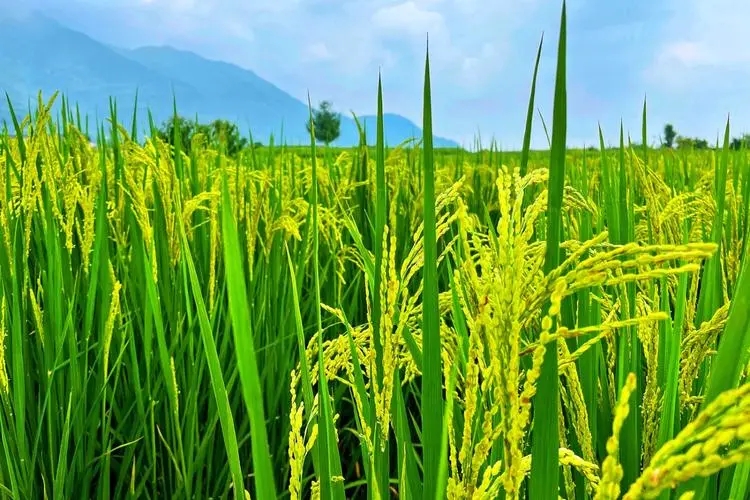

— Blogs —
—Products—
 Consumer hotline +8618073152920
Consumer hotline +8618073152920 WhatsApp:+8615367865107
Address:Room 102, District D, Houhu Industrial Park, Yuelu District, Changsha City, Hunan Province, China
Product knowledge
Time:2023-10-03 16:31:54 Popularity:720
Automatic Weather Stations Help Rice Farming Industry, Provide Scientific Management and High Quality Yield
Rice is one of the most important food crops in the world, grown and consumed mainly by Asian countries. Following are some of the major rice growing countries:

1. China: China is the world's largest rice producer and rice is one of the important crops in China. The main growing areas include the southeastern coastal area, the middle and lower plains of the Yangtze River, and parts of the northeast.
2. India: India is the second largest rice producer in the world. Rice cultivation areas in India are widely distributed in different states and districts, including the Ganges-Bengal region, Karnataka, Andhra Pradesh, and so on.
3. Indonesia: Indonesia is the third largest rice producer in the world. The cultivation areas of the country are mainly located in Java, Bali, Sumatra etc.
4. Bangladesh: Bangladesh is the fourth largest rice producer in the world. The country's cultivation areas are mainly located in the Ganges-Bangladesh region, Chittagong region, etc.
5. Vietnam: Vietnam is the fifth largest rice producer in the world. The main growing areas include the Red River Delta, the Mekong Delta, and the plains in the south.
In addition to the above countries, other major rice growing countries include Thailand, Japan, the Philippines, Pakistan, and so on. All of these countries have rice cultivation as an important agricultural industry, which makes an important contribution to meeting the global food demand.
However, rice requires specific climatic conditions for its growth; it favors high temperatures, high humidity, shorter days of sunshine, and has less stringent soil requirements. Therefore, changes in climatic conditions have an impact on the growth of rice.
In order to meet the needs of rice cultivation, modern agriculture provides important meteorological services with the help of automatic weather stations. During rice cultivation, automatic weather stations are able to monitor key meteorological factors such as air temperature and humidity, rainfall, wind speed and direction, light intensity, atmospheric pressure and so on. Meanwhile, by transmitting the monitoring data in real time, people can view and manage this information online and scientifically understand the climate change in rice cultivation.
Using data from automatic weather stations, combined with the characteristics of local rice production, the ability to forecast and warn of meteorological disasters can be enhanced, as well as the level of defense against them. Scientific management of the rice cultivation process can help farmers make informed decisions and improve the effectiveness of rice production. With these advanced technological tools, the rice farming industry can better adapt to climate change while delivering high-quality, high-yield rice.
In practice, farmers are able to adjust irrigation schedules and fertilization programs based on monitoring data from automatic weather stations to ensure that rice crops are adequately supplied with water and nutrients. In addition, with timely knowledge of weather conditions, farmers are better able to control pests and diseases, thereby improving the quality and yield of rice.
In conclusion, automatic weather stations provide important weather services for the rice farming industry. Through scientific management and the use of advanced monitoring technologies, we are able to better understand climate change during rice cultivation and provide scientific coping strategies. This will help improve the production efficiency of rice, promote the sustainable development of the rice farming industry, and provide more high-quality and high-yield rice for the people.
Related recommendations
Sensors & Weather Stations Catalog
Agriculture Sensors and Weather Stations Catalog-NiuBoL.pdf
Weather Stations Catalog-NiuBoL.pdf
Related products
 Combined air temperature and relative humidity sensor
Combined air temperature and relative humidity sensor Soil Moisture Temperature sensor for irrigation
Soil Moisture Temperature sensor for irrigation Soil pH sensor RS485 soil Testing instrument soil ph meter for agriculture
Soil pH sensor RS485 soil Testing instrument soil ph meter for agriculture Wind Speed sensor Output Modbus/RS485/Analog/0-5V/4-20mA
Wind Speed sensor Output Modbus/RS485/Analog/0-5V/4-20mA Tipping bucket rain gauge for weather monitoring auto rainfall sensor RS485/Outdoor/stainless steel
Tipping bucket rain gauge for weather monitoring auto rainfall sensor RS485/Outdoor/stainless steel Pyranometer Solar Radiation Sensor 4-20mA/RS485
Pyranometer Solar Radiation Sensor 4-20mA/RS485
Screenshot, WhatsApp to identify the QR code
WhatsApp number:+8615367865107
(Click on WhatsApp to copy and add friends)